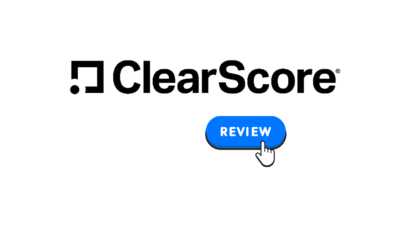Disclosure: Privacy Australia is community-supported. We may earn a commission when you buy a VPN through one of our links. Learn more.
The 8 Best Web Hosting Providers Australians Should Know About in 2024: Comprehensive Review and Comparison
Your website is your business’s home in the digital world. The web hosting provider you choose is the foundation of that home, ensuring its security, performance, and functionality. Choosing the best web hosting service for your needs can help you stand out in a sea of competitors. To help you out, we’ve put together a list of our top 8 picks for best web hosting in Australia.
At Privacy Australia, we’ve done the heavy lifting of comparing each on a set of key criteria. Our overall pick is Hostinger, but each web hosting service on this list has something valuable to offer. Below, we’ll take a look at each of these in detail. Let’s begin:
TL;DR
We understand you might not have the time to read through each review to find the best option for web hosting. Here’s a quick recap of what’s covered instead.
- We measured website hosting services on performance, security, customer support, scalability, and price.
- We’ve highlighted areas where each of these top web hosting services shines.
- Hostinger sits at the top of our list with robust features, performance, and affordability.
- There are several great options for WordPress-specific web hosting, including DreamHost.
- Siteground is best for sites demanding high performance and security.
- Bluehost is a top pick for a beginner-friendly web hosting provider.
- HostPapa is a leading choice among businesses that value eco-friendliness.
- A2 Hosting is widely recognized for its speed optimised servers.
- For business-class hosting, InMotion Hosting is our favourite pick.
- GoDaddy has a long-standing reputation and offers all-in-one services.
Criteria Breakdown Summary
When we evaluated the best web hosting providers for Australia, we focused on several key criteria areas. Each criterion has a direct impact on the quality and reliability of these web hosting services.
Each provider was evaluated on the same criteria, and the same standards, to ensure accuracy and fairness. Let’s break down the criteria used in our best web hosting reviews:
- Performance: For user experience and gaining traction in SEO rankings, performance is a critical issue. This includes performance factors like speed, response times, and overall reliability that directly impact each visitor’s experience.
- Security: In today’s digital landscape, protecting your website from cyber threats is more important than ever. Security matters, both for you and your site visitors, and a secure web hosting provider ensures data stays safe. We assessed each web hosting service on its security protocols. For those of you working at home, we recommend reading our article on secure remote working.
- Customer Support: Things happen. Something goes wrong or you have questions. Knowing your web hosting service has a reliable customer support team to back you up offers peace of mind. Customer support is so important that it’s often a deal maker or deal breaker when choosing web hosting. We assessed these providers on availability, communication channels, responsiveness, and expertise.
- Scalability: What are your goals for your website? If you see growth in your future, you need a web hosting provider that can easily grow with you. This includes the option to upgrade plans to accommodate higher traffic. You’ll see how each of these 8 providers stack up for scalability. Also, if you’re looking to scale with a WordPress site, we recommend these best WordPress web hosting services.
- Price: Last but not least is price. It’s important that you receive the best features and services for the price you’re paying. There are great budget-friendly options, but no essential features weren’t sacrificed for the sake of saving on cost. If you’re on the hunt for the least expensive options, there are cheap hosting and free hosting services worth considering.
Now you have the breakdown of the criteria we feel matters most. Let’s dive in and take a look at which web hosting platforms are best aligned with your specific needs.
Hostinger
Best Known for: Affordability and Performance
Features
Hostinger, having been around for about twenty years, has established itself as an affordable option that doesn’t compromise on performance.
Reliable, priced right, and a user-friendly interface combine to make Hostinger a popular choice, especially for beginners. For a more in-depth look, check out our Hostinger review.


Overall, we consider Hostinger to be one of the best web hosting providers Australians should know about.
Pros
- Affordable Pricing: For those looking for affordability, Hostinger is the best website hosting provider. They offer plans that begin as low as $2.99 per month with a promotional discount.
- User-Friendly Interface: We like that Hostinger’s dashboard is intuitive and doesn’t require a steep learning curve. New site owners and those who like simplicity will appreciate this feature.
- Excellent Performance: Hostinger knocks it out of the park with performance. Their speed time is reliable, and minus a very occasional glitch, runs smoothly.
- 24/7 Customer Support: Hostinger’s support team is available anytime you need them. Running a site doesn’t operate on a strict 9 to 5 and Hostinger knows this.
Cons
- Higher Renewal Rates: We give Hostinger high marks for affordability, especially for new customers. However, there’s often a significant jump in price when renewing.
- Limited Advanced Features on Basic Plans: Hostinger’s basic plan falls a little short in terms of offering its best features. The main features missing from the basic plan are important tools, like website reports and monitoring. These are features most customers want, and as a result, end up subscribing to a higher-priced plan.
Criteria Evaluation
- Performance: 4.5/5
Hostinger shines in performance, especially for a budget-friendly option. NVMe Storage ensures there’s minimal latency, and LiteSpeed offers a fast, seamless user experience. Unlimited bandwidth means that peak traffic times are not an issue. These features make Hostinger a best hosting provider for anyone on a budget seeking robust performance.
- Security: 4/5
Hostinger has the bases covered with security. This includes free SSL certificates installed automatically, malware scanners, and privacy protection. They also offer IP and country blocking for an extra level of security.
- Customer Support: 4/5
Customer support is available anytime you need it, which is a huge bonus in our book. Customers can reach the support team via live chat or an email ticket system. The ease of access is great, but some customers have reported longer than average times when waiting for a response.
- Scalability: 4/5
There are three account options that allow for scaling with ease as your business grows. The three plans include Premium, which is the basic plan, Business, and Cloud Startup. The Cloud Startup plan is the most robust, supporting up to 300 websites and 200,000 monthly visitors.
- Price: 5/5
As we’ve mentioned already, Hostinger is a great option for the budget-minded who doesn’t want to sacrifice features for affordability. Renewal terms can be pricey but the initial price commitment is one of the lowest.
Community Reviews and Expert Recommendations
Hostinger is highly reviewed by small business owners, growing businesses, and web content creators. They currently have 4.6 stars with more than 30,000 reviews on TrustPilot. The experts have good things to say about the best web hosting provider as well!
Cheap hosting, performance, and features top the list of the reasons why Hostinger is a favourite web hosting service. Even with all the positive reviews, there are some pain points that stand out. For instance, control panel sluggishness and customer support wait times. Hostinger also has great reviews for being one of the best website builders.
Pricing
Hostinger’s pricing structure makes it one of the most competitive web hosting providers in the market. The Premium plan starts at $2.99 per month with a promotional discount. This price is offered when you subscribe and pay for 48 months upfront. If you choose to pay month-to-month, the price jumps to $11.99 per month. The renewal price for the 48-month subscription is currently $7.99 per month.
The business plan currently starts with a promotional price of $3.99 per month for a 48-month subscription. The Cloud Startup plan is offered at a promotional price of 7.99 per month for a 48-month term. At the introductory rates, this hosting service is affordable for even their highest-tier plan. Our word of caution is to just be mindful of what it will cost when it’s time to renew.
SiteGround
Best Known for: Premium Performance and Security
Features
For the best web hosting options that offer robust performance and security, SiteGround rises to the top. SiteGround is a web hosting company that is particularly liked among businesses that can’t sacrifice reliability or security in their web hosting. With three different tiers of plans, SiteGround offers a long list of performance-focused features.
If you’re considering developing your own site, check out our advice on how to build a website with ease.

SiteGround Web Hosting is among the best web hosting providers in Australia.
Pros
- Excellent Performance: SiteGround is respected for the top-tier speed it offers. This is a critical detail for a website hosting provider because it’s crucial for user experience. Features like Google Cloud with SSD-persistent storage, super fast PHP, and a free CDN option contribute to SiteGround’s performance profile.
- Advanced Security Features: SiteGround’s security features include a free SSL for every site, an AI anti-bot system, and a custom web application firewall.
- Top-Notch Customer Support: Customers offer high praise of SiteGround’s customer support team for both responsiveness and expertise.
- WordPress Specialized Tools: You’ll find a wide range of specialised WordPress tools. This includes plugins, WordPress migration tools, WP Starter wizard, and more.
Cons
- Higher Prices Than Some Competitors: SiteGround offers competitive prices when there’s a promotional discount attached. However, their normal pricing structure is a bit higher than their competitors.
- Lower Storage Limits on Basic Plans: Those in need of higher levels of storage likely won’t find the basic plan to be adequate. This can be limiting for users with large websites.
Criteria Evaluation
- Performance: 5/5
SiteGround’s performance is top-notch. They offer speed, uptime reliability, and a comprehensive suite of web hosting solutions.
- Security: 5/5
We’ve rigorously tested SiteGround’s security features and have determined they’re among the most robust in the industry. The zero-cost SSL that is provided to every site wins them extra points. They also write hundreds of custom security rules for the custom WAF, proactively protecting vulnerabilities.
- Customer Support: 4.5/5
SiteGround’s customer support is highly rated. Their support team is available 24/7 and can be reached via chat, phone, and helpdesk tickets. They also offer AI help support.
- Scalability: 4/5
There is definitely potential to scale your sites with SiteGround. When moving up to the higher-tier plans, the features become robust enough to handle significant growth. The highest-tier plan offers unlimited websites and 400,000 visitors monthly. The only downside is that the higher-tier plans are more costly.
- Price: 3.5/5
If you can catch a promotional discount, SiteGround can be a great deal. However, their normal pricing is a bit out of the ballpark compared to other top competitors. This is especially true for the GrowBig and GoGeek plans. On a positive note, you really do get robust features for the price paid.
Community Reviews and Expert Recommendations
The SiteGround community is keen on the web hosting provider for its reliability, security, and customer support. Performance is another highlight. SiteGround currently has a 4.8 with more than 2,800 reviews on TrustPilot.
Experts and community members both recommend SiteGround. Especially for those seeking a reliable web hosting company that also offers specialised support and tools for WordPress.
Pricing
SiteGround isn’t the most economical website hosting service. If you’re looking for a budget-friendly option, this isn’t it – usually. To attract new customers, SiteGround will offer promotional pricing, which can be a great value. The caveat here is that the cost will likely skyrocket to regular pricing once the initial subscription term ends.
Regular pricing for the startup plan is $17.99 per month. The mid-level plan, GrowBig is regularly priced at $29.99 per month. And the highest tier, GoGeek, is $44.99 per month. SiteGround is an example of how you get what you pay for website hosting services.
With promotional discounts, the pricing can be as low as $2.99, $4.99, and $7.99 respectively.
Bluehost
Best Known for: WordPress Integration and Beginner-Friendliness
Features
Bluehost makes it onto our list of best web hosting providers for their WordPress integration. However, it’s the fact they are hands-down one of the best for newcomers that really sets them apart. A minimal learning curve and robust functionality features are attractive features for beginners.

Bluehost is among the best web hosting providers due to their WordPress.
Pros
- User-Friendly Interface: Bluehost’s intuitive, easy-to-use interface is a standout feature. It’s simple and straightforward enough that those with minimal technical experience won’t feel overwhelmed.
- Excellent WordPress Integration: Bluehost has an official recommendation from WordPress. Many of their tools are tailored specifically for WordPress users, and they offer one-click installations.
- Free Domain for First Year: This is a great feature for anyone, but especially those just building their first site. A free first year provides time to experiment and grow, making your domain stand out, with minimised financial investment.
- 24/7 Customer Support: Bluehost offers round-the-clock customer support to assist with issues any time of the day or night.
Cons
- Performance Can Be Inconsistent: We’ve found Bluehost to be generally reliable in terms of speed. However, bigger websites can experience lag and latency.
- Some Upsells During Purchase Process: We’re not crazy about all of the upsells Bluehost’s presents at the checkout process. For experienced site owners, this isn’t a big deal. However, it can be overwhelming for beginners.
Criteria Evaluation
- Performance: 4/5
Overall, Bluehost offers decent performance. Our only complaint is that inconsistencies with speed and performance on larger sites can be an issue.
- Security: 4/5
Bluehost offers important security features, including a free SSL with every plan. Plans also include a free CDN and web application firewall.
- Customer Support: 4/5
Bluehost’s customer support team is available 24/7. Customers can reach support via chat or phone. There is also a dedicated number for sales and international support.
- Scalability: 4.5/5
While Bluehost is good for those just starting out, its features and plans are robust enough to support significant growth. There are four plans offered. The highest tier offers web hosting for 100 websites and 400,000 visitors per month.
- Price: 4/5
Bluehost is reasonably priced, especially with introductory or promotional pricing. When choosing Bluehost, be mindful that additional services not included in the plans will significantly hike the price.
Community Reviews and Expert Recommendations
With an average of 4 out of 5 stars, Bluehost is well regarded, especially for WordPress hosting services in Australia. A beginner-friendly interface, scalability, and strong WordPress integration rank among the top reasons customers like Bluehost. This is one of the website hosts that understand beginner pain points and has strived to remedy them. Many of the positive reviews have come from small business owners looking for a comprehensive hosting and web development partner.
On the flip side, we’ve noticed a less-than-positive trend with Bluehost reviews lately. The inconsistencies with performance, especially with larger sites, have caused some issues for business owners. For this reason, Bluehost might not be one of the best website hosts for heavy-traffic sites.
Pricing
The pricing structure with Bluehost is fairly typical with other best web hosting providers. The initial pricing is more than reasonable for what’s offered, at least with the introductory discount. However, renewal prices are a bit steep in comparison.
Bluehost offers four different tiers of subscription packages. These include Basic for $4.42 per month, Choice Plus/$8.17, and Pro/$20.91 per month. They also offer an Online Store tier for $14.92 per month. Keep in mind these are introductory prices and may change.
Where Bluehost falls short in the pricing department is the add-ons when it’s time to check out. For instance, an upsell for professional email that is appealing with three months free. However, after that, the price is $11.99 per month.
HostPapa
Best Known for: Eco-Friendly Hosting and Small Business Focus
Features
HostPapa is hands-down one of the most affordable web hosting providers, especially for small businesses. Plus, in addition to being budget-friendly, they’re also eco-friendly. They support solar and wind energy and purchase RECs to power their operations. HostPapa is a good choice for environmentally-conscious entrepreneurs.

HostPapa is among the best web hosting providers that’s budget-friendly and eco-friendly.
Pros
- Eco-Friendly Hosting: HostPapa is committed to sustainability through the support and use of green energy. This helps to offset the environmental impact caused by web hosting.
- Small Business Focus: HostPapa has been designed specifically for small businesses. Its tools and features meet the needs of entrepreneurs, startups, and small operations.
- Free Website Builder: Those with a Growth, Premium, or Elite web hosting account can access HostPapa’s website builder for free. Without a subscription to one of these plans, the website builder is still affordable at $4.99 per month.
- Excellent Customer Support: HostPapa has one of the best customer support reputations among web hosting providers in Australia.
Cons
- Performance Can Be Inconsistent: While not a constant concern, some users have reported fluctuations in speed. However, HostPapa does offer a 99.9% uptime guarantee.
- Higher Prices Than Some Competitors: HostPapa offers excellent features, which justifies a price structure that’s higher than some other web hosting providers.
Criteria Evaluation
- Performance: 3.5/5
We truly want to give HostPapa a higher score in this area, but there are a few too many stories about performance issues to ignore. Even if this is only an occasional issue, it can cause significant problems for small businesses.
- Security: 4/5
HostPapa has checked all the boxes for security. With security features that include SSL certificates and regular backups, small businesses can rest easy knowing they’re protected.
- Customer Support: 4/5
Overall, HostPapa has an above-average performance with its customer support. Their team is available all hours of the day and night. Support can be reached via chat, phone, email, snail mail, and even fax.
- Scalability: 3.5/5
In our opinion, HostPapa is a really good option for small businesses and those just starting out. And, while they do offer scalable plans for growth, business owners might find other options more suitable for their needs.
- Price: 4/5
HostPapa offers four different plans for web hosting. And while the most basic plan is only about $3.00 per month, you really get the best features by levelling up to one of the higher tier plans.
Community Reviews and Expert Recommendations
On TrustPilot, HostPapa ranks 4.8 stars with over 2,000 reviews. The community has mostly overwhelmingly positive things to say. In fact, the community reviews are either five stars (majority) or 1 star (small minority). There isn’t an in-between. Among the praise HostPapa receives is the attentiveness and responsiveness of its customer support team, and simplicity.
Experts generally agree with the community consensus. Experts are also more likely to mention HostPapa’s eco-friendly approach to web hosting and specialised tools for small businesses. HostPapa is viewed as a good hosting and website building service.
Pricing
With HostPapa, the pricing plans are average among the best web hosting service providers. When initially signing up, new customers benefit from introductory pricing that is as much as 65% off regular prices. To benefit from these reduced prices, new customers need to sign up for a three-year subscription. It’s also the case that businesses with plans for growth won’t find the basic Essentials plan to be robust enough for their needs. However, HostPapa is a web hosting platform that offers good value for the price. For example, they offer free website migration that allows you to stay online during your move. Plus, free domain transfer or free domain registration for one year.
A2 Hosting
Best Known for: Speed-Optimised Servers
Features
If you have the need for speed, A2 Hosting is the answer. This is one of the best web hosting providers for speed enthusiasts. A2 is optimised for faster load times, along with offering a range of other important features.

A2 Hosting makes our list of best web hosting providers in Australia due to its faster load times.
Pros
- Extremely Fast Servers: This is where A2 Hosting stands out. With them, you get quick load times and an overall smooth user experience. This is key for small businesses that rely on their site performance.
- Free Site Migration: A2 Hosting will do the hard work of site migration for you, and it’s completely free. They offer an expert site migration team to ensure the process runs smoothly.
- Anytime Money Back Guarantee: When you sign up with A2 Hosting, you have the option to change your mind. When cancelled within 30 days, customers receive a full refund. If cancelled between 30 and 90 days, a prorated refund rate is offered.
Cons
- Higher Prices Than Some Competitors: A2’s introductory prices are very affordable. However, you only benefit from this pricing structure if you commit to three years.
- Renewal Rates Can Be Expensive: Renewal rates for A2 Hosting are pricier than many other web hosting services. For example, the introductory rate for the Startup plan is 84% off the renewal price.
Criteria Evaluation
- Performance: 4.5/5
A2 Hosting is a shared hosting platform, meaning customers receive high performance at a significantly lower cost. A2’s servers are known for speed and efficiency. However, if you need to level up the speed even more, they do offer plans with a Turbo Speed option.
- Security: 4/5
You can expect solid security features with A2 Hosting. Free SSL certification and a team dedicated to continual security measures keep your sites safe. A built-in virus scanner and firewall are among the security features.
- Customer Support: 4/5
A2’s support team is available to address issues and concerns 24/7. Customer support can be reached via text, phone, or email. Their support team is overall reliable, although some customers cite delayed response times.
- Scalability: 4/5
For most small businesses and entrepreneurs, A2 Hosting will meet all their needs through each growth phase. Due to shared servers, large sites with heavy traffic could experience a drop in performance, especially during peak times.
- Price: 4/5
A2 Hosting offers flexible pricing with options for 36 months, 12 months, or monthly plans. It doesn’t come as a surprise that monthly plans are substantially more. However, this is a standard pricing policy in the industry. Basic shared hosting is $1.95 per month with a 36-month contract. At a monthly rate, it jumps to $10.95.
Community Reviews and Expert Recommendations
In the community, A2 Hosting is respected as one of the best web hosting companies for those desiring speed and developer-friendly features. A2 Hosting customers rave about fast load times and seamless site operations, making day-to-day operations easy. For small business owners, this is important for peace of mind.
Site developers have also mentioned appreciation for A2 Hosting’s range of tools. Additionally, they offer out-of-the-box optimised WordPress and WooCommerce for WordPress, making them a solid web hosting solution.
Pricing
A2 Hosting offers four main plans, each suited for various business needs. Their plans are priced higher than other web hosting companies, but they’re also each optimised for speed and performance. If speed is a priority, then the extra cost is worth the benefits. The plans range from Shared Hosting at $1.95 per month up to Dedicated Hosting at $199.99 per month. WordPress Hosting Is currently priced at $9.95 per month. Keep in mind that these are discounted introductory rates that require a 36-month web-hosting website commitment.
InMotion Hosting
Best Known for: Business-Class Hosting and Support
Features
InMotion Hosting captured our attention with their hosting services tailored to growth-minded businesses that demand support and performance. They offer business-class hosting with SSD drives, meaning reliable performance across the board with faster load times.

InMotion Hosting makes our list of the best web hosting providers available due tailored services for growth-minded businesses.
Pros
- Excellent Customer Support: InMotion Hosting has a strong reputation for exceptional customer support. Help is available 24/7, 365 days a year, and can be reached via chat or phone.
- Strong Performance with SSD Drives: The use of SSD drives allows InMotion Hosting to offer the fastest load times, which is critical for business web hosting services.
- 90-Day Money-Back Guarantee: New customers can try InMotion Hosting with zero financial risk. They offer a generous 90-day money-back guarantee.
- Business-Focused Features: With InMotion, customers can access growth tools that aren’t offered by other web hosting websites. For example, a range of marketing tools are available with each plan.
Cons
- Higher Prices Than Some Competitors: With the level of premium services InMotion offers comes a premium price tag. This makes them a less viable option for small startups on tighter budgets.
- Control Panel Can Have a Learning Curve: InMotion’s interface is user-rich and dynamic. Because of this, there can be a steeper learning curve for those with less tech experience.
Criteria Evaluation
- Performance: 4/5
Performance is a strong point for InMotion Hosting. With SSD-powered services, they’re able to ensure quick load times and that even the highest traffic times will be handled efficiently.
- Security: 4/5
InMotion customers can feel safe and secure when operating their businesses. Their security measures include secured data centres, free SSL certificates, connection to four tier-1 ISPs, hack protection, and more.
- Customer Support: 4.5/5
With 24-hour customer support available and a responsive support team, InMotion earns high marks in this area. It’s difficult to find a negative word about InMotion’s approach to customer care. Support can be reached via chat, phone, or support ticket system.
- Scalability: 4/5
There is ample room to grow with InMotion. For businesses that are anticipating a growth phase, this means there’s no reason to worry about migration. With options for shared hosting, dedicated hosting, and WordPress-specific plans, your growing business is covered.
- Price: 3.5/5
Price isn’t the strongest selling point for InMotion, but you do get robust features for the cost of the investment. Performance, business-specific features, and support justify the cost. The base plans are reasonably affordable, but costs are notably higher for the most robust features.
Community Reviews and Expert Recommendations
InMotion Hosting is frequently praised for its strong performance and customer support team that goes above and beyond. Expert reviews of website hosting companies mention InMotion Hosting’s value for business-class web hosting services. Among the community, users mention how they’ve been able to successfully scale their businesses using InMotion Hosting. This is largely due to its business-focused platform.
Pricing
With InMotion, the pricing reflects the robust features and premium services tailored toward businesses. Its pricing is higher than other web hosting websites, but not extremely so. Introductory term prices are more than reasonable. However, it’s the renewal rates that can be prohibitive for budget-minded small businesses.
Something else to keep in mind here is that the Core plan starts at only $2.99 per month (renews at $10.99 per month). However, the features are significantly limited compared to the higher-tier plans. Other plans range from $4.79 to $10.79 per month for introductory rates. Renewal rates start at $13.99 per month, depending on the plan.
DreamHost
Best Known for WordPress-Optimised Hosting
Features
DreamHost has WordPress-optimised hosting mastered. They are recommended from the mouths of WordPress directly. And, they provide web hosting that is specifically tailored to the unique needs of WordPress users. This dedication to WordPress sites creates a seamless, smooth user experience for every site visitor.

WordPress Hosting at Dreamhost.com is optimised, making it one of the best web hosting providers that meets the needs of WordPress users.
Pros
- WordPress-Optimised Hosting: DreamHost employs a team of WordPress experts who are knowledgeable of the ins and outs of WordPress. With this level of knowledge, they can tackle any issue that may arise.
- User-Friendly Interface: Dreamhost’s interface was designed with user-friendliness in mind. It’s intuitive enough that those with minimal tech and site management experience can navigate it with ease.
- Month-to-Month Pricing Available: A web hosting service that doesn’t require a two or three-year commitment up front? Sign us up. This is a great option for smaller businesses that are still in the developmental stages.
- 97-Day Money-Back Guarantee: Other hosting websites offer a money-back guarantee, but none quite this generous.
Cons
- Limited Phone Support: While DreamHost offers phone support, it’s somewhat limited. The focus leans more toward live chat and email, which can be troublesome when phone-based support is needed.
- Fewer Hosting Options for Non-WordPress Sites: DreamHost is good at what they do, which is WordPress. Hosting for non-WordPress sites is less than optimal.
Criteria Evaluation
- Performance: 3.5/5
If what you’re seeking is a solid performance for WordPress sites, DreamHost performs. However, we base our score on how they perform across all platforms. For non-WordPress users, other web hosting services provide better performance outcomes.
- Security: 4/5
With DreamHost, you get the standard, effective security features. This includes a free SSL certificate for your site and automated backups.
- Customer Support: 3.5/5
Customer support is available via live chat, support ticket, and phone. However, phone support is lacking and callbacks may be limited. DreamHost also offers priority customer support, but only for its upper tier plans.
- Scalability: 4/5
For WordPress sites, DreamHost offers solutions most businesses can grow with. There’s also a decent range of pricing options to align with the budgets of small to large businesses.
- Price: 4/5
DreamHost pricing is notably more than most other web hosting providers. However, the WordPress specialisation can justify the cost. They also offer month-to-month pricing that isn’t astronomical.
Community Reviews and Expert Recommendations
Within the online community, DreamHost has excellent reviews. They’re rated at a 4.7 on TrustPilot with more than 6,000 reviews. Customer service is one area that DreamHost customers give props to time and again. While limited phone support can be a pain point, the customer support team itself is stellar. It also comes as no surprise that WordPress users specifically are more than pleased with DreamHost.
Expert recommendations share the same sentiment about DreamHost as a website hosting provider. Experts turn to its flexible pricing and user-friendliness as highlights.
Pricing
DreamHost offers flexible month-to-month or annual pricing for hosting websites. What stands out to us is that month-to-month fees are not significantly more than annual fees. Prices for monthly plans start as low as $4.95. However, the highest tier plan is $79.95 per month for only one WordPress site.
GoDaddy
Best Known for: Domain Registration and All-in-One Services
Features
GoDaddy is possibly the most well-known web hosting provider. They offer a comprehensive range of features and tools that have established them as one of the most prominent players.

Pros
- User-Friendly Interface: A respected feature of GoDaddy’s platform is its user-friendly interface. The design makes it easy to manage multiple domains from one central location.
- Wide Range of Services: GoDaddy is more than just web hosting. They offer all-in-one services that include domain registration, email hosting, and website building tools.
- 24/7 Phone Support: As is standard with the best web hosting providers, GoDaddy also offers round-the-clock customer support.
- 1-Click App Installations: With a focus on simplicity and ease of use, 1-click installation with apps like WordPress makes the process a breeze.
Cons
- Aggressive Upselling: Few people enjoy aggressive upselling techniques. Unfortunately, GoDaddy can be relentless with upselling attempts, driving up the cost of its services.
- Performance Can Be Inconsistent: This seems to be a recurring pain point for some GoDaddy users. Some customers report load times that are slower than other website hosting services.
Criteria Evaluation
- Performance: 3.5/5
GoDaddy’s performance ranks as average overall. Most users report positive experiences. However, there are enough who have experienced sluggishness, especially with heavy traffic times.
- Security: 3.5/5
GoDaddy offers the basics, like malware scans and SSL certificates. If you want additional security features, plan on paying a bit extra.
- Customer Support: 3.5/5
There are some mixed reviews with GoDaddy’s customer support. However, most users have positive things to say about their experience with the support team.
- Scalability: 4.5/5
With GoDaddy, there is a wide range of hosting plans. This makes scaling your business a seamless process, without needing to switch hosting providers.
- Price: 4/5
Overall, GoDaddy’s pricing structure is competitive among web hosting sites. The caveat here is that you need to be mindful of upsells.
Community Reviews and Expert Recommendations
On community review sites like TrustPilot, GoDaddy has great reviews. However, a fair share of these are based on its domain registration services. They receive overall positive community feedback on web hosting, also, but some of the reviews are more mixed.
Users like the comprehensive offerings and all-in-one feel that GoDaddy offers. Customer service can sometimes be a challenge, and upselling tactics get a little old after a while.
Still, experts are quick to recommend GoDaddy as one of the best web hosts. This is based on its strong reputation and expansive service offerings.
Pricing
GoDaddy’s pricing is reasonable and competitive, but not the most economical option. Plans start from $10.99 per month for a one-year term. For a bit more, a premium plan is available, offering a higher level of flexibility. The highest-tier plan offers the most robust features at $27.49 per month.
FAQ
What factors should I consider when choosing a web hosting provider?
There’s lots to consider when choosing a web hosting provider. Details like performance, security, pricing, scalability, and customer support are the most important.
What’s the difference between shared, VPS, and dedicated hosting?
Shared hosting means that multiple websites all share the same server. With VPS hosting, a virtual private server is used. This typically provides better performance. The highest level of performance comes with dedicated hosting. With this, you have your own server, but the cost is typically significantly more.
How important is customer support in web hosting?
Customer support is essential. Things happen every day that require the assistance of an expert support team. This is especially true for those who are new to web hosting or have minimal tech experience. It’s always smart to choose a web hosting service with an excellent customer support reputation.
What security features should I look for in a web host?
At the bare minimum, features like SSL certificates, regular backups, DDoS protection, and firewalls should be expected. Anything less than this and your website becomes vulnerable to attacks. To learn more, check out the best cybersecurity courses in Australia.
How does web hosting affect my website’s SEO?Factors like speed, uptime, and end-user experience are important SEO metrics. Choosing a hosting service that excels in these areas will positively affect SEO right from the start.
Final Thoughts
Choosing the best web hosting provider in Australia is essential to your success online. There are many options to choose from, and we have shared 8 of our top choices with you. Consider your specific needs now, and how you want your business to grow in the future. Overall, we feel Hostinger is a standout option for most small businesses.

At Privacy Australia, we’re committed to providing accurate, transparent reviews and information on web hosting companies and more. Whether it’s web hosting, VPNs, or trading platforms, and more let us be your resource for the up-to-date insights and all that you need when learning how to protect your digital sovereignty..




